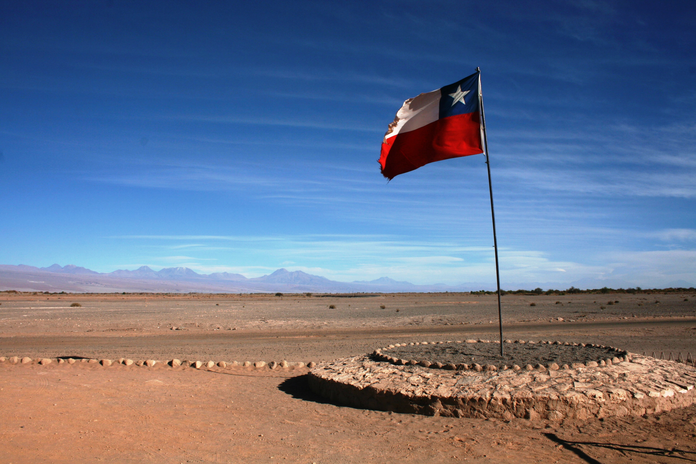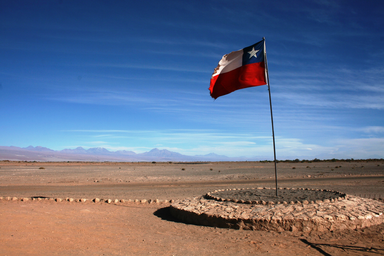Between 1973 and 1990, Chile experienced some of its bloodiest and most violent years. The Latin American country witnessed a lack of democracy and impositions during a military dictatorship that lasted 17 years. In nearly two decades, under the command of General Augusto Pinochet, 40,000 people have been detained, tortured, or disappeared, as well as more than 3200 were executed.
As in other countries of the continent, the concern of the opposition of the socialist president, Salvador Allende, was “national reconstruction”. Allende’s ambitions, such as the nationalization of the copper industry, land reform, and nationalization of the banks, represented a threat to the more conservative elites of the time. In addition, the U.S. feared the leftist president’s economic measures and began sabotaging the Chilean government. As a result, there was a severe financial crisis and inflation that reached more than 300%.
Finally, on September 11, 1973, a military coup took place amid an increasing polarization and with funding from the CIA. The Military Junta commanded by Augusto Pinochet planned a bombing to attack the presidential palace, La Moneda, and Salvador Allende committed suicide by refusing to leave.
The Pinochet dictatorship
Although the coup happened in 1973, General Augusto Pinochet officially assumed the presidency on December 17, 1974. Until 1990, Chile lived years of fear. It is estimated that about 3200 people were killed by government repression and another 40,000 were tortured. Because it was a dictatorship, the Congress was dissolved and the existence of political parties was banned, opponents were hunted down and often imprisoned and tortured. One of the symbols of repression of the time was the National Stadium of Santiago, the space was where violence against political prisoners happened.
The economic crisis from the government of Salvador Allende was masked by an “economic miracle“. The measures imposed by the new dictator made the economy grow along with social inequality, public spending on social programs being reduced, higher education being privatized, and taxes increasing.
Pinochet’s government was guaranteed until 1988 by the constitution promulgated in 1980. However, after the plebiscite with the population in the same year of that government, 56% of Chileans expressed their dissatisfaction with the dictatorship. As a consequence, the presidential elections were scheduled and, in 1989, Patricio Aylwin was elected, taking office in 1990.
After being defeated in the plebiscite, Pinochet did not detach himself from political life, he remained a senator until 1998. The period of re-democratization of the country was a moment of questioning about numerous denunciations and trials of crimes committed by members of the government.
Pinochet’s arrest
Regardless of the lifetime political agreement, Augusto Pinochet was arrested on October 16, 1998. At the time, the former president was in London for spinal treatment and believed he was being protected by diplomatic immunity. Consequently, the Spanish judge, Baltazar Garzón, issued an international warrant for arrest, along with extradition to Spain. There were 503 days in jail for the criminal complaint under Operation Condo, an agreement of Latin American dictatorships created to persecute opponents.
Despite the arrest, the dictator’s health was deteriorating, and by January 2000, medical examinations indicated that he was not fit to stand trial. At the age of 91, in 2006, Pinochet died at the Military Hospital of Santiago.
Marks of the dictatorship after 50 years
Even after the 50th anniversary of the Chilean military dictatorship, the country still feels the marks left by 17 years of brutality.
These walls… witnessed horrors and a violent and oppressive past that we have not forgotten and will not forget.
President Gabriel Boric said from the balcony of La Moneda in March 2022 after being elected as Chile’s youngest president.
In addition, the country still maintains the 1980 constitution, which despite deep reforms does not guarantee rights, such as parity between men and women in state organs, the autonomy of native people, and water. These measures have already been proposed in 2022, but the text was rejected by 62% of the population.
Up till now, Chile remains strongly polarized by the legacies of this violent past, the government launched this year the National Search Plan for the investigation of the disappearance of 1,469 people during the regime. Even with these searches, families remain unanswered and many of the servicemen died before being arrested or were sent to cells equipped with private rooms.
————————————-
The article above was edited by Beatriz Gatz and translated by Julia Tortoriello.
Liked this type of content? Check Her Campus Cásper Líbero home page for more!


